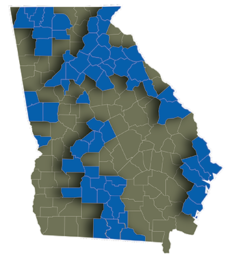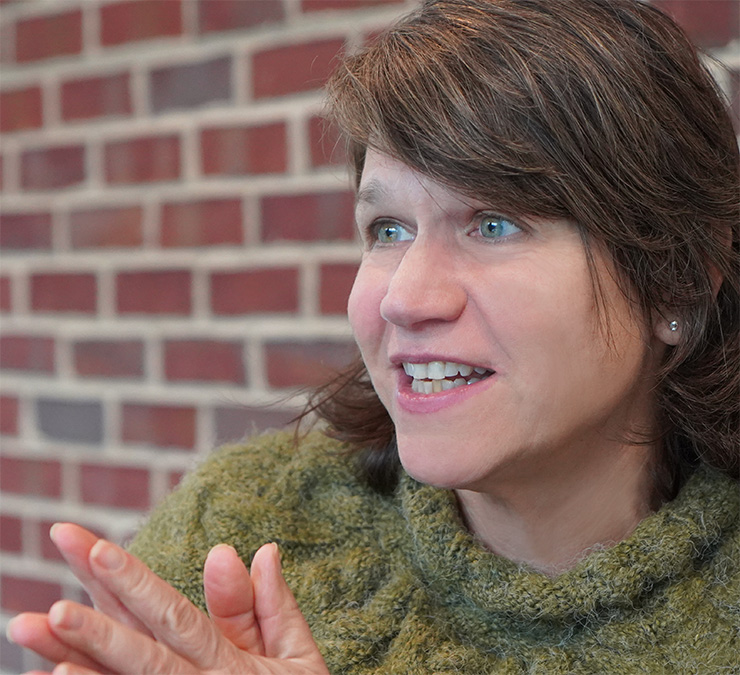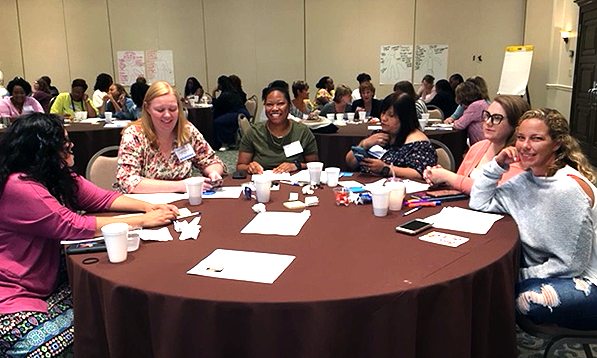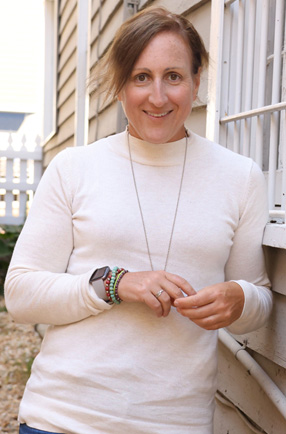Georgia Home Visiting Program

Georgia Home Visiting Program
Managing pregnancy and the first year of a baby’s life can be demanding for anyone but is especially so for those facing difficulties like social isolation, domestic violence, and poverty. When mothers are given the support, information, and resources to be the best caregivers they can be –
the impact lasts a lifetime.

CFR provides assistance to nearly 40 home-visiting programs in Georgia in over 60 counties.
“What could be more meaningful THAN supporting mothers in the incredibly important work of raising a child?”
Dr. Anita Brown,
Associate Director
Center for Family Research


The First Step
Many home visiting programs start by screening participants through First Steps–a screening and referral service for all expectant parents, primary caregivers, and children from birth to five years and their families. Referrals based on this screening may include community resources such as childcare options, housing supports, health care assistance, and pediatrician suggestions. When more ongoing support is needed, a referral to a home visiting program may be made.
Three types of home visiting programs
The home visiting programs throughout the state are built around one of these three, evidence-based home visiting programs that specify methods for successful home visiting.

The goals of home visiting programs
are to
![]() The Technical Assistance and Quality (TAQ) Team at the Center for Family Research provides support to Georgia’s First Steps and Home Visiting Programs through six primary services.
The Technical Assistance and Quality (TAQ) Team at the Center for Family Research provides support to Georgia’s First Steps and Home Visiting Programs through six primary services.
The TAQ team provides guidance for programs to meet the many programmatic requirements of funders and home visiting models to help programs maintain compliance with data requirements, model fidelity, and site accreditation in a streamlined, efficient manner.
Our TAQ Team provides ongoing core and supplemental trainings to support new home visitors as well as advanced trainings, model-specific initiatives and an annual statewide conference to provide the latest in best practices for home visiting. The TAQ Team also maintains the GHVP Training, Tools and Resources Portal to ensure that home visitors have the most up to date trainings and other resources at their disposal to inform their work.
The TAQ Team is responsible for the administration and support of the Georgia Home Visiting Information System (GEOHVIS) which allows all programs to report data to the Georgia Department of Public Health and other state and federal entities.
The TAQ team routinely monitors home visiting programs’ performance data by supporting sites with data cleaning and quality assurance activities. The TAQ Team also provides quarterly and annual reports to DPH and the HRSA to show progress on 19 maternal and child health outcomes.
The TAQ team supports home visiting programs with Continuous Quality Improvement (CQI) initiatives in order to ensure that services to families are dynamic and innovative (while still data-driven).
The TAQ team evaluation staff are collaborating with three other states to conduct an evaluation on ways that home visiting prevents and ameliorates the impact of maternal depression.

Our annual Home Visiting Institute addresses strategies to improve the quality and effectiveness of home visiting services, with an emphasis on supporting healthy infant-toddler development and parent-child relationships and developing skills necessary for establishing, building and enhancing relationships with families.

“I look forward to our Institute each year because we all feel the shared sense of mission.”
Michelle Lanier, M.P.H. Technical Assistance and Quality Team Director
Read the Georgia Cooperative Extension Service news story: Across Georgia, home visitors support a good start
This video from the Georgia Department of Public Health provides an overview of home visiting services in Georgia.
Visit the
Georgia Department of Public Health website
to learn more



